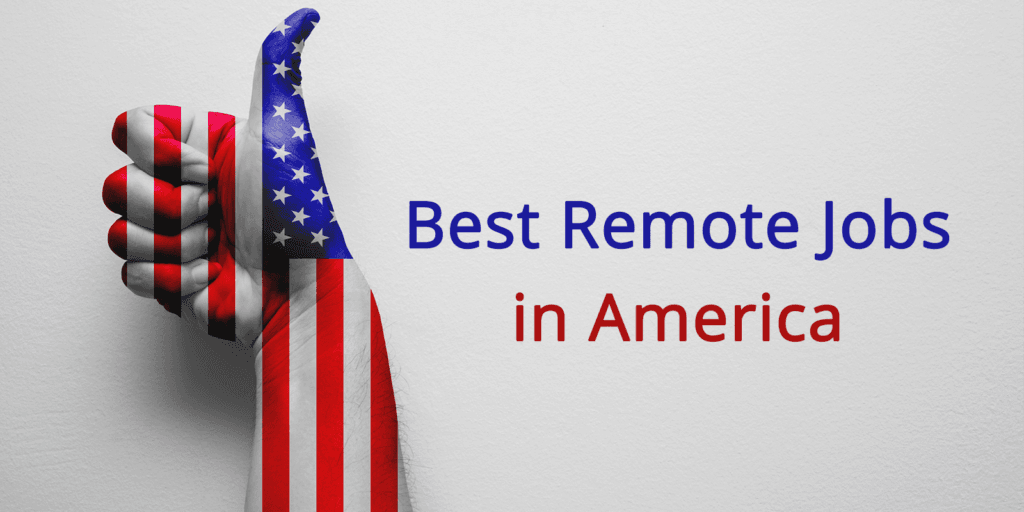AI Ethics Officers in 2026 are pivotal in ensuring responsible AI deployment, with demand surging due to regulations like the EU AI Act and global ethical standards. Projections from salary aggregators indicate average salaries ranging from $80,000 for entry-level to $200,000+ for senior roles, with mid-career professionals earning $120,000–$180,000 in the US. In Europe, averages are €60,000–€90,000 (≈ $65,400–$98,100 at a 1.08 USD/EUR rate), while the UK sees £50,000–£75,000 (≈ $65,000–$97,500 at 1.3 USD/GBP). Total compensation often includes bonuses of $5,000–$15,000 ($417–$1,250/month) and benefits worth $10,000–$20,000 ($833–$1,667/month).
Below is a detailed breakdown by employer type, experience level, and geographic region, with monthly equivalents for clarity, along with context about regulation that drives demand for AI ethics functions.
Role Drivers: Why AI Ethics Officers Are in Demand
Before diving into pay ranges, it’s useful to understand the regulatory and institutional pressures creating demand for AI Ethics Officers:
- In the European Union, the EU AI Act has formally entered into force (1 August 2024) and imposes obligations on providers and deployers of high-risk AI systems, requiring governance, transparency, documentation, conformity assessments, and post-deployment monitoring.
- The EU also established the European Artificial Intelligence Office (EU AI Office) within the European Commission, which supervises enforcement and supports implementation of AI regulation.
- In the US, although there is no single comprehensive federal AI law yet, federal agencies have been issuing guidelines and executive orders related to safe, trustworthy, and transparent AI usage (e.g. “Safe, Secure, and Trustworthy Development and Use of AI”)
- In many states in the U.S., new AI governance bills are emerging, requiring private sector disclosures, transparency, and audit obligations.
- These pressures push large tech firms, governments, and institutions to build in-house capacity for ethics, risk, compliance, audit, bias mitigation, and stakeholder engagement, elevating the need for senior, well-paid AI Ethics Officers.
Because of this regulatory tailwind and reputational risk, organizations are willing to invest in high compensation for specialists who can mitigate legal, operational, and brand risk from AI deployment.
Salary Ranges by Employer Type
Below are typical salary (base) ranges in USD, EUR, GBP for AI Ethics Officers in 2026, by employer type. (Bonus, benefits, and equity aside.)
Corporate Tech / Big Tech
These are the highest-paying roles, especially in large platform companies or AI product companies.
- United States (Tech): Base $140,000–$200,000 ($11,667–$16,667/month). Bonuses add ~ $10,000 = ~$150,000–$210,000 total ($12,500–$17,500/month).
- Europe (Tech): Base €80,000–€110,000 (€6,667–€9,167/month), plus ~€8,000 bonus → €88,000–€118,000 total (≈ $95,800–$128,600, €7,333–€9,833/month).
- UK (Tech): Base £55,000–£75,000 (£4,583–£6,250/month), + £5,000 bonus → £60,000–£80,000 total (≈ $78,000–$104,000, £5,000–£6,667/month).
Because tech firms often include equity or stock grants, the total compensation can rise further by $20,000–$50,000 (≈ $1,667–$4,167/month) or more.
Government / Regulatory Bodies
Public sector roles tend to pay lower than tech, but offer stability, benefits, and strong legitimacy.
- United States (Government): Base $110,000–$160,000 ($9,167–$13,333/month). Bonus ~$5,000 → total ~$115,000–$165,000 ($9,583–$13,750/month).
- Europe (Government): Base €70,000–€90,000 (€5,833–€7,500/month). Bonus ~€4,000 → total €74,000–€94,000 (≈ $80,640–$102,480, €6,167–€7,833/month).
- UK (Government): Base £50,000–£70,000 (£4,167–£5,833/month). Bonus £3,000 → total £53,000–£73,000 ($68,900–$94,900, £4,417–£6,083/month).
Government roles typically include generous benefits (health, pension, stability) that may soften the lower base.
Non-Profit / Academic Institutions
These roles are often funded by grants or institutional budgets, and are more mission or research oriented.
- United States (Non-Profit / Academia): Base $80,000–$110,000 ($6,667–$9,167/month). Average grant/bonus ~ $3,000 → $83,000–$113,000 ($6,917–$9,417/month).
- Europe (Non-Profit): Base €50,000–€70,000 (€4,167–€5,833/month). Bonus ~€2,500 → total €52,500–€72,500 (≈ $57,200–$79,050, €4,375–€6,042/month).
- UK (Non-Profit / Academia): Base £40,000–£55,000 (£3,333–£4,583/month). Bonus £2,000 → £42,000–£57,000 ($54,600–$74,100, £3,500–£4,750/month).
These roles often emphasize publication, thought leadership, policy, and cross-sector collaboration.
Consulting / Advisory Firms
Consulting ethics or AI strategy roles command high rates due to billable models plus expertise premium.
- United States (Consulting): Base $130,000–$180,000 ($10,833–$15,000/month). Bonuses or billable component ~$12,000 → total $142,000–$192,000 ($11,833–$16,000/month).
- Europe (Consulting): Base €75,000–€100,000 (€6,250–€8,333/month). Bonus ~€8,000 → total €83,000–€108,000 (≈ $90,440–$117,720, €6,917–€9,000/month).
- UK (Consulting): Base £55,000–£75,000 (£4,583–£6,250/month). Bonus £6,000 → total £61,000–£81,000 ($79,300–$105,300, £5,083–£6,750/month).
Consulting often includes significant performance incentives based on project delivery, client impact, and utilization.
Salary by Experience Level
Here’s how base and total compensation tend to scale based on years of experience:
| Experience Level | US (Base + Bonus) | Europe (EUR) | UK (GBP) |
| Entry (0–2 yrs) | $80,000–$100,000 base + ~$3,000 bonus = ~$83,000–$103,000 | €50,000–€65,000 | £40,000–£50,000 |
| Mid (3–5 yrs) | $110,000–$150,000 + ~$8,000 bonus = ~$118,000–$158,000 | €70,000–€90,000 | £50,000–£70,000 |
| Senior (6+ yrs) | $160,000–$220,000 + ~$15,000 bonus = ~$175,000–$235,000 | €90,000–€120,000 | £70,000–£95,000 |
In tech and consulting, senior roles may also receive stock, carried interest, or profit-sharing, pushing total compensation significantly higher.
Additional Compensation & Benefits
Beyond base and bonus, these are common components for AI Ethics Officers:
- Equity / Stock Grants / RSUs: Especially in tech firms, may add $10,000–$50,000+ annually.
- Benefits / Perks: Health, dental, pension/retirement contributions, life insurance, wellness, parental leave, remote/hybrid flexibility.
- Professional allowance or development budget: Used for certification, conferences, memberships.
- Signing bonuses / relocation: Common when hiring across geographies, especially for senior candidates.
- Performance incentives / long-term incentive plans (LTIPs): For senior roles, tied to business or AI product success.
Typical bonus percentages run 5–15% of base; benefits packages may be valued at $10,000–$20,000 (≈ $833–$1,667/month) or more for high-end arrangements.
Net (After-Tax) Monthly Income Estimates
These are rough estimates assuming typical tax burdens; actual net pay depends heavily on local tax rates, deductions, and benefits.
- US (assuming ~25% effective tax):
- Tech senior: from gross ~$17,500/month → net ~$13,125
- Government mid: ~$12,500/month gross → net ~$9,375
- Consulting: ~$16,000/month → net ~$12,000
- Europe (assuming 25–35% tax):
- Tech senior: gross €9,833/month → net ~€6,400–€7,400
- Government mid: €7,833/month → net ~€5,100–€5,900
- Consulting: €9,000/month → net ~€5,850–€6,750
- UK (assuming 20–40% tax):
- Tech senior: £6,667/month → net ~£4,000–£5,300
- Government mid: £5,833/month → net ~£3,500–£4,600
- Consulting: £6,750/month → net ~£4,050–£5,400
These are ballparks; local tax regimes, allowances, social security contributions, and benefits will vary significantly.
Regional Factors & Market Differences
Some important regional and market dynamics to consider:
- Cost of living & location premium: In the U.S., roles in Silicon Valley, New York, or Washington, D.C. will pay significantly more (adjusted for cost) than in smaller metro or rural areas. The same principle applies in Europe and the UK (e.g. London vs smaller UK cities, or Paris / Berlin vs provincial).
- Exchange rate fluctuations: EUR, GBP, USD exchange rates affect global comparison.
- Regulatory and compliance pressure: Regions with stricter regulation (such as EU under AI Act) will have stronger demand and possibly higher compensation for ethics roles.
- Talent supply and scarcity: Because AI ethics is a relatively nascent specialization, the scarcity premium is high, especially for those combining ethics + technical AI + governance skills.
Key Skills, Credentials & Role Responsibilities
To command these high salaries, AI Ethics Officers need a strong mix of skills, credentials, and demonstrated outcomes.
Responsibilities (typical scope)
- Governance frameworks: designing, implementing, and overseeing internal AI ethics governance, steering committees, review boards
- Bias, fairness, and mitigation: conducting audits, fairness testing, model validation
- Transparency, explainability, audit trails: ensuring traceability of AI decisions, documentation, interpretability
- Compliance & regulation liaison: monitoring and aligning to frameworks like the EU AI Act, data privacy (GDPR), sectoral laws
- Risk assessment & mitigation: identifying harms, adversarial risks, misuse potential, model drift, adversarial attacks
- Stakeholder engagement & policy: coordinating with legal, compliance, product, external audit, regulators, and public interest groups
- Training & culture: education and awareness in the organization about AI ethics, training teams
- Monitoring & post-deployment oversight: anomaly detection, feedback loops, incident response
- Reporting & accountability: regular metrics, dashboards, impact reporting to leadership
Core Skills & Qualifications
- Strong technical literacy in AI/ML (models, pipelines, evaluation)
- Understanding of ethics, philosophy, governance, risk frameworks, algorithmic fairness
- Experience with data privacy, compliance, legal/regulatory frameworks
- Ability to translate technical risk into business/institutional context
- Organizational leadership, stakeholder management, cross-functional collaboration
- Certifications or educational credentials: e.g. AI ethics programs, governance certificates, advanced degrees in ethics, computer science, policy
- Prior experience with audits, bias testing, validation, model governance
A candidate who can straddle technical, ethical, and organizational domains is far more valuable.
Market Trends & Future Trajectory
- As the EU AI Act moves into enforcement phases (various obligations applying gradually) organizations will accelerate hiring of ethics, regulatory, compliance, and monitoring personnel.
- Regulatory enforcement and fines will shift ethics functions from optional or advisory to mandatory cost centers.
- The reputational risk of AI failures (bias, privacy violations, harms) heightens the business imperative to staff robust ethics teams.
- New roles may evolve: AI Ethics Architect, Algorithmic Risk Officer, Bias & Fairness Lead, Responsible AI Auditor, AI Governance Director.
- Ethics units may spin off or partner with audit, legal, compliance, or internal risk departments.
- Senior roles may cross into board-level responsibilities, overseeing AI strategy, corporate liability, and public trust.
Because of this, salaries for ethics roles are not just premium now—they are likely to keep rising, at least in markets with strong AI activity and regulation.


